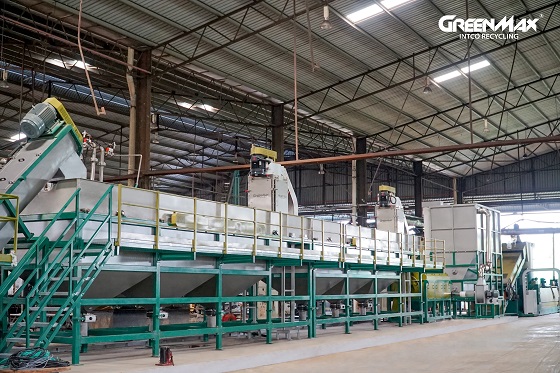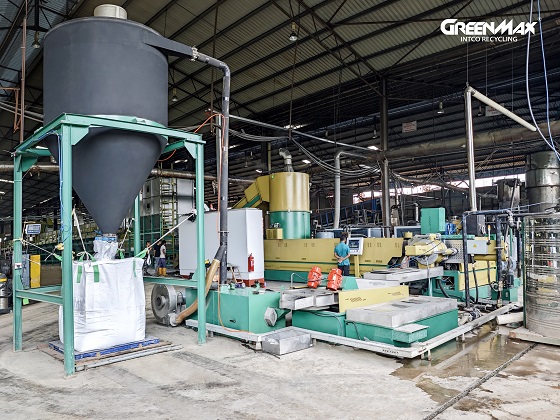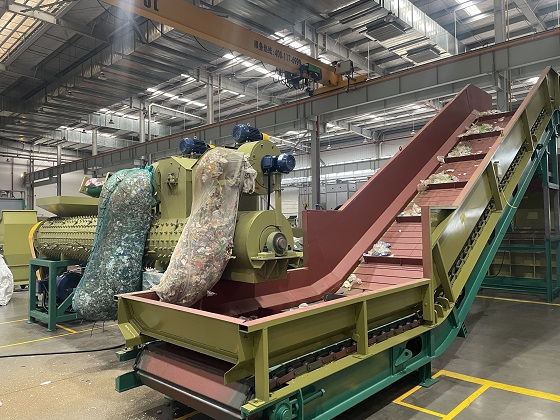Transforming Plastic Waste in the UK: The Role of GREENMAX Recycling Equipment
Plastic waste has become one of the UK’s most pressing environmental challenges. Despite steady progress in recycling rates and the introduction of new regulations, the country continues to struggle with issues such as regional inconsistencies, insufficient infrastructure, and the environmental costs of plastic production and disposal. However, with innovative technologies like GREENMAX plastic recycling equipment, the UK has a powerful tool to accelerate its transition toward a circular economy.
The State of Plastic Recycling in the UK (2025)
The UK’s plastic recycling landscape is undergoing substantial change. In 2023, 64.8% of the nation’s packaging waste was recycled—an increase from 62.4% in 2022. However, the pace of progress is uneven. Some regions, such as the South West, show promising rates near 50%, while others, including London, lag behind at just 33.5%. Compounding the issue, the UK lost approximately 260,000 tonnes of annual plastic recycling capacity over the past 18 months due to market disruptions and delayed legislation.
To address these challenges, the UK government has introduced several key measures:
Simpler Recycling Regulation (effective March 31, 2025): This mandates businesses and non-domestic premises in England to separately collect recyclable materials, including plastics.
Plastic Packaging Tax (PPT): Increased to £223.69 per tonne in April 2025, this tax applies to packaging with less than 30% recycled plastic.
Extended Producer Responsibility (EPR): Slated for rollout in 2025, EPR shifts the cost of managing packaging waste from taxpayers to producers.
These regulations are designed to create incentives for businesses to reduce plastic use and invest in sustainable alternatives. But regulation alone is not enough—technology and infrastructure must keep pace.

Enter GREENMAX: Advanced Plastic Recycling Technology
GREENMAX, a brand of INTCO Recycling, provides state-of-the-art equipment to address the UK's pressing plastic waste issues. With a range of densifiers, compactors, and pelletizing systems, GREENMAX specializes in turning problematic plastic waste—including Expanded Polystyrene (EPS), EPE, EPP, and PE foam—into valuable recycled materials.
The GREENMAX APOLO and MARS series are particularly suited for the UK market, where reducing the volume of bulky plastic waste is essential for efficient transportation and processing.
Key Advantages of GREENMAX Recycling Equipment:
Volume Reduction: GREENMAX machines compress foam plastics into dense blocks or ingots, achieving up to 90% volume reduction. This significantly lowers transportation costs and storage needs.
Material Recovery: The compacted plastic can be reused to manufacture picture frames, insulation products, and packaging materials—supporting a true closed-loop recycling model.
Environmental Benefits: By recycling foam plastics instead of incinerating or landfilling them, GREENMAX solutions help reduce greenhouse gas emissions and protect natural resources.
User-Friendly Design: The machines are engineered for easy operation, with automated features suitable for councils, recycling centers, retailers, and logistics hubs.

UK Industry & Municipal Adoption
The demand for reliable, efficient recycling solutions is growing across the UK, particularly among local authorities and large retailers. For example, Marks & Spencer (M&S) has recently partnered with Polytag to track plastic packaging disposal using invisible digital tags. While this improves traceability, the physical recycling still depends on robust machinery—an area where GREENMAX plays a critical role.
GREENMAX equipment is already in use globally, and its potential to scale in the UK is immense. Councils can install compactors at waste management sites to handle high volumes of polystyrene packaging. Supermarkets and electronics retailers can use densifiers to recycle foam packaging from deliveries, reducing waste and cutting costs associated with disposal.
Public Opinion and Circular Economy Pressures
Consumer awareness and advocacy are shaping the recycling agenda in the UK. A recent survey revealed:
- 78% of consumers believe supermarkets use too much single-use plastic.
- 57% support taxing companies that fail to reduce non-recyclable plastic use.
In this context, companies using GREENMAX equipment can align with public demand by reducing plastic waste and promoting responsible recycling practices. Adopting such technology is not only environmentally beneficial but also boosts corporate social responsibility (CSR) profiles.

Infrastructure Expansion and Innovation
Plans are underway to revamp industrial areas like Grangemouth into low-carbon hubs, with plastic recycling as a core component. The proposed £3.5 billion transformation project includes facilities for advanced recycling, hydrogen fuel production, and sustainable aviation fuel—representing a future-forward model for industrial revitalization.
Integrating GREENMAX machines into such developments will allow operators to locally recycle high volumes of foam plastics, minimizing the carbon footprint associated with transportation to distant recycling centers. This approach also supports job creation and aligns with the government’s net-zero strategy.
Future Outlook: A Greener UK with GREENMAX
As the UK grapples with plastic waste management amid economic and regulatory shifts, the adoption of cutting-edge recycling equipment becomes increasingly vital. GREENMAX provides a tested, scalable, and eco-friendly solution for businesses, councils, and recycling operators alike.
To meet national recycling targets and build a resilient circular economy, stakeholders must invest not just in policy but also in technology. With GREENMAX’s proven performance, the UK can take a decisive step toward reducing plastic waste and setting an example in sustainable waste management for the world.
